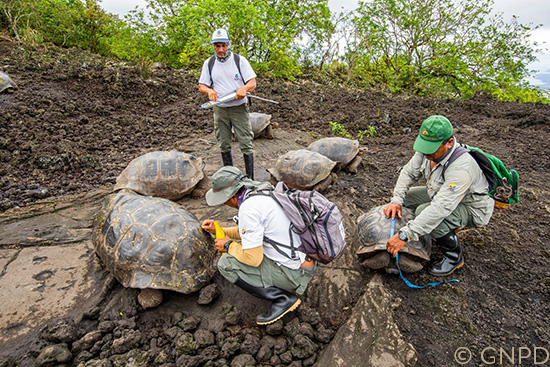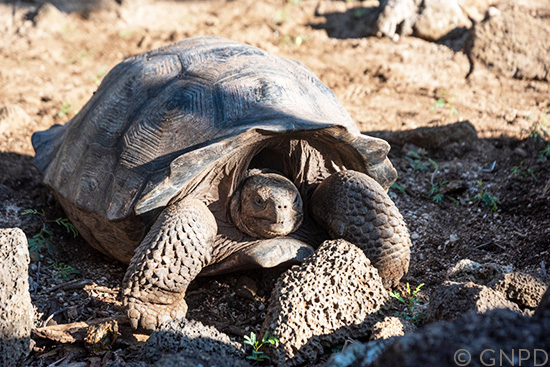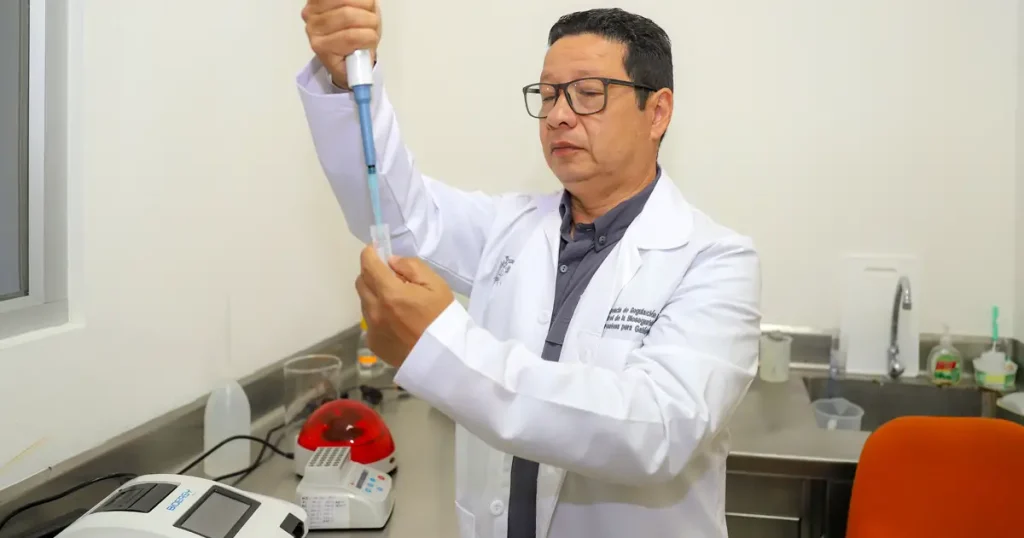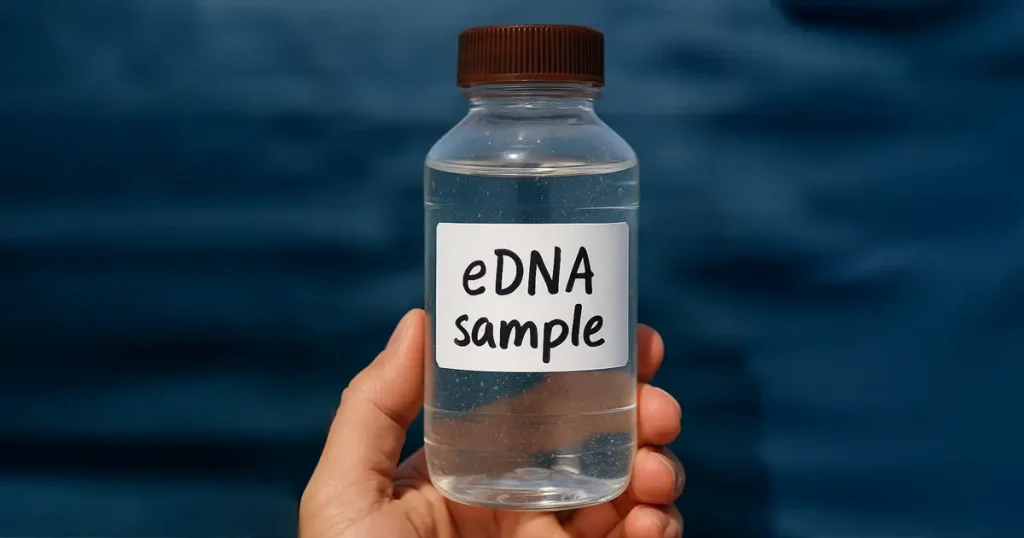BREAKING: Expedition to Wolf Locates Tortoise with Pinta Genes
January 31, 2020
A team that traveled to Wolf Volcano for a 10-day expedition returned this morning with 31 hybrid giant tortoises with partial lineage of the Chelonoidis abingdonii and Chelonoidis niger tortoise species, both considered extinct on Pinta and Floreana Islands, respectively.

Of the tortoises identified, 20 (12 females and eight males) have known partial lineage of the species considered extinct on Floreana Island. One female has a 16% genome of Chelonoidis abingdonii, the extinct species from Pinta Island to which Lonesome George belonged. The latter is a young female presumed to be a direct descendant of a pure individual — who may still inhabit some area of this volcano in the north region of Isabela Island. Ten other tortoises (seven females and three males) had not been genotyped but had highly saddleback shells — typically of Floreana and Pinta species. These will be genotyped soon to determine where they came from.

In this expedition, which is part of the Giant Tortoise Restoration Initiative (GTRI), a program implemented by Galápagos Conservancy and the Galápagos National Park Directorate, the field team consisted of 45 Park rangers and scientists divided into 12 search groups that traversed approximately 77 square miles of tortoise habitat on Wolf Volcano.
The team also collected approximately 50 blood samples from tortoises located for the first time, which were also given an identification microchip. The purpose of this is to perform genetic analysis to determine the species to which they belong, since a large population of hybrid individuals inhabits Wolf Volcano — including species considered extinct. In previous centuries, pirates and whalers released tortoises collected on other islands and left them here.
The 31 tortoises collected on this expedition were transferred to the “Fausto Llerena” Breeding Center on Santa Cruz Island. After a quarantine process, the Floreana hybrids will join the existing Floreana captive breeding program. The Park will evaluate potential management actions for the Pinta tortoise; watch this space for updates.



